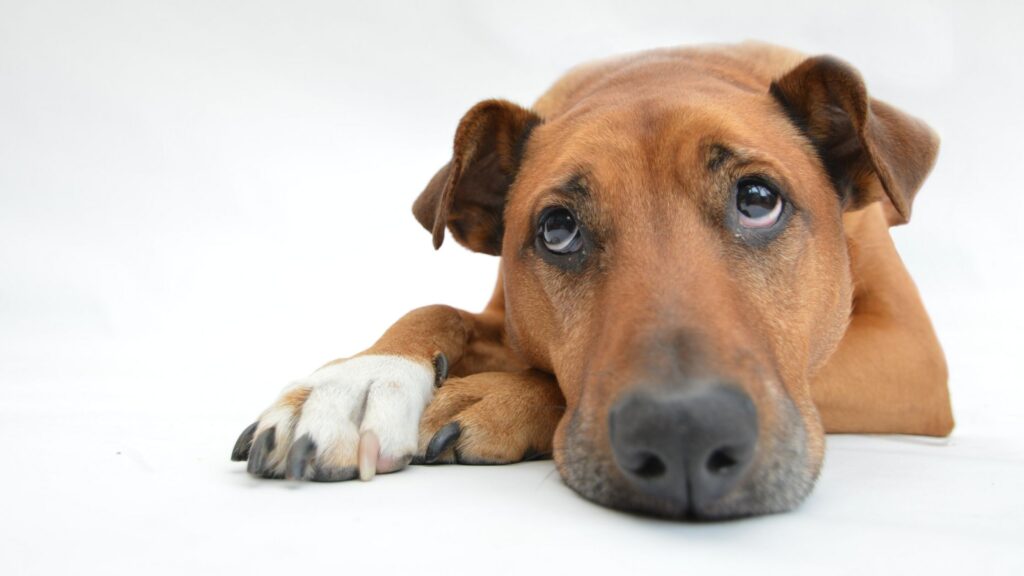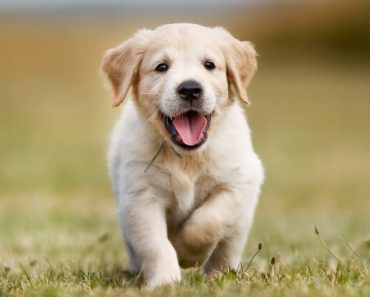I recently shared an article on dog vomit, taking a closer look at what different colors, textures, and smells actually mean. Plus, we went over when dog vomit is cause for concern. (If you haven’t read that article yet, you can check it out HERE.) After publishing that read, I received an email with a really great question: “Why does my dog eat vomit?”
Here’s the thing …
While the thought of throwing up partially digested food, taking a whiff of the chunky mess, and then lapping it back up sounds quite disgusting to us, it’s actually perfectly normal for our dogs.
Let’s Back Up for a Minute … What is Vomit?
In our last vomit article, we highlighted the difference between regurgitation and vomit. Yup – they’re two different things. A quick overview:
Unlike regurgitation (which happens without warning and results in a pile of undigested food on the floor), with vomiting, you’ll notice your pup drooling, whining, pacing, gagging, and/or retching. You’ll see Fido’s stomach muscles in action as they work hard to force the food out of the stomach or intestines, back up the esophagus, and out of his mouth. And you’re left with partially digested food on the floor.
Why Do Dogs Eat Their Puke?
It Smells Great … Well, to Our Dogs
That mess may look gross to us, but, to our pups, it’s still food. Your canine companion may take one whiff, recognize the smell, and think: Yummmyyyy!
Whether or not a dog digs in and begins feasting on his puke may have something to do with how digested the food actually is. Experts say if the food is still pretty whole then it’s more appetizing to Fido. But, if the food is completely broken down and mostly bile, it doesn’t appear nearly as tantalizing. Again, it’s all about how it smells (not looks)!
A dog’s sense of smell is way more sophisticated than ours. Here are some quick facts on the doggy nose:
- The canine nose can be anywhere from 10,000-100,000 times more sensitive than a human nose.
- A dog has up to 300 million olfactory receptors in their nasal cavity, whereas a human only has up to 6 million.
- Canines possess the ability to analyze the scents they are sniffing at a rate of 40 times greater than a human.
- Dogs can smell through each nostril independently so that they can actually identify what direction a smell is coming from.

It’s Natural
In the wild, it’s totally normal for wolves and other wild canines to regurgitate food to feed their young. This normally happens during the weaning process, as babies transition from mom’s milk to solid foods. And get this: This behavior isn’t exclusive to animals in the wild. A Swedish study conducted in 1995 found roughly 60% of domestic dogs still regurgitate food for their puppies. So, in theory, experts say the idea of dogs eating chewed up or partially digested food isn’t new or cause for concern.
Is it Harmful for Dog’s to Eat Vomit?
Unfortunately, there’s no real black and white answer to this. It really depends on the vomit contents. If your dog simply puked once (out of the blue) because he ate his regular food too quickly then that throw up pile isn’t harmful. If your dog continues to throw up because he ingested something toxic or inedible, though, eating it would just result in re-consuming that toxin or bad substance.
According to VetHelpDirect, “In addition, vomit contains a lot of acid which can damage the teeth – pitting the enamel surface and making dental disease more likely in the future.”
In general, even if a puke pile doesn’t contain anything truly harmful for your dog, you should still discourage your furkid from digging in.
Discouraging Your Pup from Eating Vomit
One of the best things you can do to prevent your pup from eating his own vomit is to simply remove him from the scene of the crime. As soon as you hear your pup retching and see him vomit, go comfort him, wipe his face, and put him in the other room while you clean.

When to Call the Veterinarian
If Fido only vomits once but otherwise seems happy, is eating, drinking, having normal bowel movements, and playing normally then he’s probably just fine. Observe him. No need to call the vet unless you notice him vomiting again or observe changes that indicate he isn’t feeling well.
If your dog throws up more than once, seems weak, sluggish, has loss of appetite, weight loss, pale gums, is dehydrated, constipated, diarrhea, seems to be in pain, and just not feeling well then call your vet right away. If your pooch is vomiting red blood or coffee ground material — call your vet immediately. There is no time for delay! This is a medical emergency that is potentially fatal depending on the severity of the bleeding.








